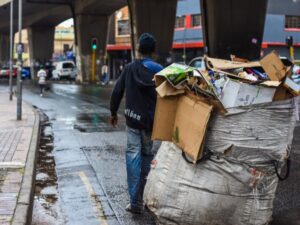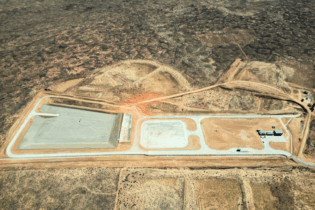Managing waste properly is essential for building sustainable and liveable cities, but it remains a challenge for many of South Africa’s largest metros. Infrastructure News speaks to Pikitup about their waste management process and strategies.
Following waste backlog due to the expiry of ad hoc fleet contract, unpaid salaries and protests which in 2019, Pikitup talks about the changes made to manage waste more effectively the City of Johannesburg. Current challenges Pikitup reveals that with regards to the current waste issue within Johannesburg central, Pikitup has noted that there are numerous reasons behind them. “Firstly, there is a significant number of hawkers who sell their products in almost every street of the city and leave their waste on the street,” says Communications Manager at Pikitup, Muzi Mkhwanazi. Other contributing factors which should be taken into account are the number of homeless people who create temporary shelter in the streets of Johannesburg – they are also responsible for the decay and dirt in the city. Furthermore, with the growing issue of illegal dumping and littering, waste bins and other types of street furnisher are often vandalised. Thus, requiring the company to call on more help to rid the waste problem including law enforcement, social development to assist with the city’s dirt and grime.Waste collection
Pikitup follows a strict weekly waste and recycling collection schedule to gathering domestic waste. The waste is then disposed of in the city’s landfill sites. Trucks, drivers and teams of employees are usually assigned to work through the recyclable waste. The recyclables collected are dropped at the co-operative site who are responsible for sorting. Data about the tonnages of recyclable materials to qualify the amount of recyclable waste diverted away from landfills is sent to Pikitup by the corporative. Through the S@S programme, Pikitup mostly recycles cans, plastic, glass and paper. The S@S programme was initiated by Pikitup at the Watervaal Depot which covers surbubs like Westcliff and Northcliff in 2009. The main objective of this programme is to divert waste from the landfills. To date, Pikitup has created approximately 2025 jobs in all regions of the city through their co-production model. “The model’s approach entails the appointment of co-operatives, non-profit companies and exempted micro-enterprises, to ensure improved waste management services in the City of Johannesburg. Forty-two of such companies have been appointed on a 3-month rotational basis to assist Pikitup with litter picking, street cleaning and rendering education and awareness programmes to residents about the value of a clean environment,” Muzi concluded.





